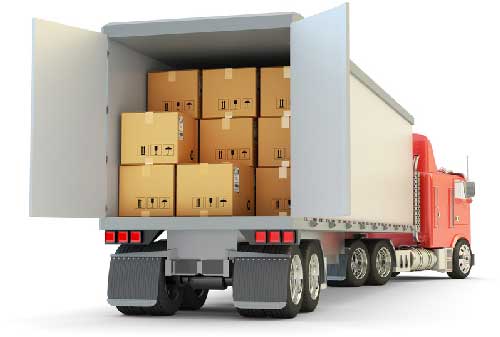Cargo Expedition: The Cornerstone of Global Commerce
Cargo Expedition: The Cornerstone of Global Commerce
Blog Article
Cargo transport is an essential aspect of the worldwide logistic and supply chain business. It involves transporting things over huge distances mostly via air, sea, or land, ensuring that products reach their destinations safely and efficiently. In the wake of rapid growth in international trade and e-commerce and the need for effective freight expeditions has risen. From raw materials through finished goods, cargo plays crucial roles in driving the world economy, and connects companies and consumers across all over the world. The growth of cargo operations that are aided by advances in technology and strategic infrastructure has fundamentally changed how things are moved around the world that allows it to keep up with the growing demands for international markets.
One of the key components for a successful cargo trip is the range of options for transportation to meet specific shipping requirements. Air cargo, which is known for its speed and reliability, is often used for valuable or sensitive goods like pharmaceuticals, electronics, and fashion products. Ocean shipping, on contrary, dominates the movement of bulk goods, with cost-effective options for products such as grain, oil and machines. Transport on land, which includes trucks and railways, is essential for last mile delivery and inter-regional connectivity. When you integrate these modes into multimodal transportation infrastructures cargo transport, cargo trips maximize efficiency and speed up transit time, helping to ensure goods are delivered according to schedule.
Logistics involved in cargo expeditions require meticulous preparation and coordination to make sure that the cargo is moved efficiently items. Shipping companies must account for things like climate conditions, customs regulations and security guidelines when organizing the transportation of cargo. They must also optimise delivery routes and schedules in order to reduce costs and the time to deliver. Most cargo transport involves multimodal modes, where goods are transferred through various modes of transportation. For example, cargo may be carried by ship into a major port later transported by trucks to distribution centers. Being able to effortlessly switch from one mode of transport to another is crucial for maintaining the efficiency of your business and to avoid disruptions to any supply chain.
Technology has played a transformative impact on the development of Cargo Expedition by significantly increasing both the speed as well as accuracy of the shipments. The latest developments in tracking technology including GPS and RFID can allow for real-time monitoring of the movement of cargo. This transparency benefits both shippers and customers by providing accurate delivery updates and ensuring the quality and security of the cargo. Digital platforms also simplify the registration and documenting process and allow companies to handle the flow of their cargo more effectively. Through the use of sophisticated software allow businesses to automate clearance of customs and shipping routes, and track inventories, which ultimately reduces errors made by humans and enhancing the overall quality of service. As technology advances in the field of automation, its role, artificial intelligence, and analysis of data for cargo trips will further enhance the performance and precision of logistics across the globe. To find further details please visit Muat
Sustainability is now an essential aspect in cargo voyages as the logistics industry is under increasing demands to minimize its environmental impact. Transport, especially in the maritime and air industries is a major contributor to global carbon emissions. To combat this numerous companies are adopting environmentally friendly practices like using green fuel, optimizing routes in order to cut down on fuel consumption, as well as implementing energy-efficient technology. In addition, a few companies are looking at alternative ways of transporting cargo, like electric trucks or even solar powered vessels, in order to decrease the carbon footprint of their operations. The increased emphasis placed on environmental sustainability during cargo journeys is a reflection of a wider movement towards environmental sustainability and the necessity to tackle the issue of climate change.
Cargo expeditions are the cornerstone of global commerce, supporting the transportation of goods as well as driving economic growth worldwide. By utilizing advanced transportation methods along with innovative technology, as well as an attention to sustainability, the industry continues to evolve to meet the needs of an increasingly interconnected globalized. Their dedication and knowledge of professionals in logistics further improve the efficiency and reliability of the operations, making sure that firms can flourish within the competitive marketplace. As global trade continues to expand, cargo journeys are a vital component of the supply chain. They will be instrumental in advancing the growth of commerce while promoting cooperation on a massive scale. Their influence extends beyond the logistics aspect, influencing economies and connecting local communities across all over the globe.